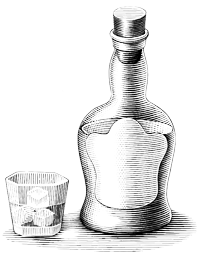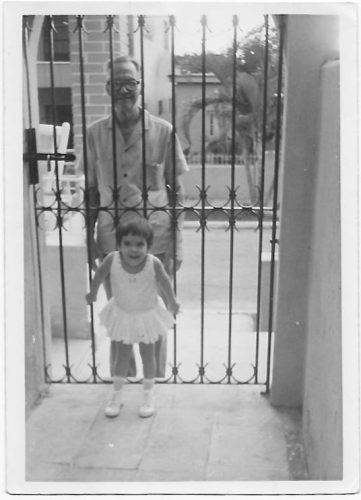

“The idea is not to live forever, it is to create something that will.”
– Andy Warhol

All of Jose Manuel’s businesses are intervened and seized by the communist regime. In 1968, Castro’s regime enacts, “La Ofenciva Revolucionaria” law, which unequivocally ends private ownership rights for Cubans.

Díaz-Bonilla’s father boards a raft headed to Florida, but is caught before reaching freedom. He is imprisoned.

In 1956, Janet’s grandfather, Jose Manuel Diaz, affectionately known as “Manolo,” sells his first market called La Favorita, one of the most well-regarded and recognized establishments of its time in Artemisa, Cuba. With profits from the sale, he purchases three other businesses: a bakery and bread shop called La Reina (his wife’s nickname) and a market called Casa Manolo, primarily known for its fine liquors and liqueurs. Manolo hand-picked every spirit sold at Casa Manolo, as each had to meet his high-quality standards. He had begun to build a legacy for his family, but their success would be short-lived. New Year’s Eve, 1958, initiated unforgettable events orchestrated by a ruthless dictator who callously stole the aspirations and legacies of many Cuban families. By 1963, all of Jose Manuel’s businesses had been intervened and seized by the communist regime.

Without anything to their name, many families fled Cuba; however, those with sons close to military age, as was the case for the Díaz family, were not as fortunate.
In 1970, Janet’s father was about to graduate from the university when he boarded a raft headed to the United States, but was caught before reaching his freedom. After being imprisoned, and upon his release refusing to work for the government, the Cuban regime forbade him from graduating or pursuing an education in any field. He was branded a “traitor” and labeled a political prisoner; a badge he wears to this day with utmost honor.
April 1st, 1980, initiated a political tidal wave with thousands of Cubans swarming the Peruvian embassy, begging for political asylum, due to Castro’s tyrannic hold on the island. This movement provoked an exodus known today as The Mariel Boatlift. May 16th, 1980, at just six years old, Janet, along with her parents, Pedro and Elsa Diaz, journeyed from the Mariel Port in Mariel, Cuba, to Key West, Florida, across the Florida Straits. A voyage which endured seventeen hours at sea, in the dark of night, during a death-defying storm. Upon arrival at Key West on May 17th, 1980, and like many other Cuban families without someone to “claim” them, the family was transferred for further processing to a holding camp at former Army base Fort Chaffee in Sebastian County, Fort Smith, Arkansas. They were held at Fort Chaffee for a harrowing fifty-three days, and would not be awarded their freedom until July 8th, 1980.
“Growing up without my beloved grandfather was a high price to pay for my freedom. In many ways this brand is also an homage to him, and to all of us who sacrificed so much for the birthright of being free. We all have our story, and sometimes we can’t change the outcome of our life’s trajectory. We can, however, reflect on our circumstances, find value in our experiences, and transcend toward a legacy.”
By entering this site, you are agreeing to our Privacy Policy. This website and all of its content are property of La Marielita, a registered trademark brand. We are not responsible for any irregularities or damage on items purchased through third-party links provided on our site or otherwise. We do not encourage purchase or consumption of alcohol, and any choice to do so is the sole decision of the customer/consumer. GOVERNMENT WARNING: (1) According to the Surgeon General, women should not drink alcoholic beverages during pregnancy because of the risk of birth defects. (2) Consumption of alcoholic beverages impairs your ability to drive a car or operate machinery and may cause health problems. Distributed by Southern Glazer’s Wine & Spirits – Craft Collection.